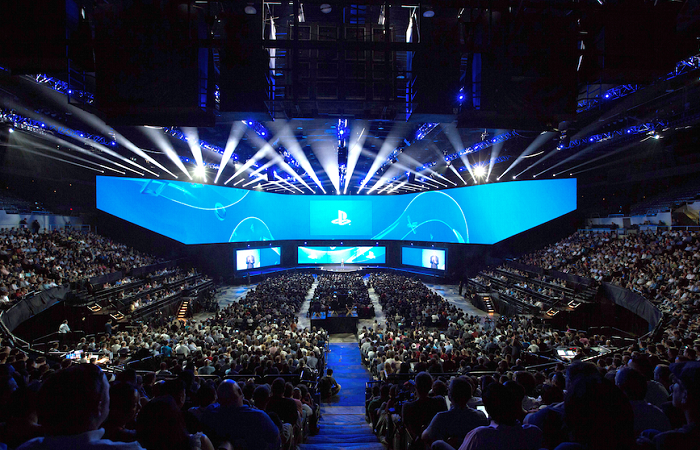
The Best Kind of Narrative is Built on Anticipation and Excitement
By Zach Kliger
Every June, video game developers, journalists, and executives gather in Los Angeles at the Electronic Entertainment Expo to talk about the latest news and developments in their industry. For all intents and purposes, E3 looks exactly like every other trade show you can think of. Companies shop their new products in the hopes of gaining marketing attention and buzz. But here’s the crazy part: Millions of fans celebrate this event’s return every year.
We can see this same kind of effect at every Apple conference. People are enraptured by their latest offerings, and tune in eagerly to learn more about what new features are coming, no matter how small the iterative leap may be.
In many ways, this is the ultimate goal of marketing: when consumers are actively excited about your product before they even know what it is; when they anticipate the latest update, feature, or new reveal just like they would a new season of their favorite TV show.
The reason why these brands succeed goes well beyond the wealth of their history. It isn’t just because they are selling “sexy” consumer products: games, phones, etc. They’ve built a legion of fans because, whether intentionally or not, a narrative has sprung up around them. A narrative of anticipation and excitement — one that promises something to look forward to in the lives of their consumers.
Every good story is built on some form of anticipation. Whether it be the hero defeating the villain, overcoming some personal challenge, or getting the girl/boy, we eagerly look forward to the result when we can see all their hard work and all of their trials and tribulations pay off, as Hollywood Story Expert Michael Hauge points out in his article on Story Structure. When Erin Brockovich wins the settlement, when Maximus defeats Commodus. That moment of catharsis — the relief from all those struggles — is always the best part.
This is the kind of narrative that you should be tapping into when you build a brand story around your product. That moment of catharsis is a little more abstract in this case. People are constantly looking for things to anticipate in their daily life. Usually it’s something exciting on the horizon to break up the drudgery of the every day — an upcoming movie that they can’t wait to see or a vacation to a place that they can’t wait to get to. The goal is to make people wish they could jump ahead in time just so they could get closer to having your product in their hands.
To do this, you need to promise more than just a solution. Whether your audience is defined by businesses or consumers, you need to become something that people are just as excited by as the ending of a great story. Again, this is hardly exclusive to “sexy” tech products. Any brand, any business can tap into the power of anticipatory narratives.
It’s as simple as promising something that is going to give your audience all the power they need to overcome the challenges in their lives — the support that will help them hit their own personal moment of catharsis. If you can situate your product at the climax of the story — the turning point where everything is going to get a hell of a lot better — then you’ve successfully built all the anticipation that you need.
People and businesses are always looking forward to that moment of change, that turn around the corner when things are finally going to swing upward. Sell yourself as that pivot-able moment, and you’ll have all the excitement and anticipation that you’re ever going to need.
Sean Plott, the host of one of the many conferences at E3 this past year, said that “the day before E3 is like the day before Christmas.” This is the greatest achievement of the anticipatory narrative. If you can make your product just as thrilling as everyone’s favorite holiday, then you’ve got it made.
Zach Kliger is an Intern at Woden. Whatever your storytelling needs may be, let Woden help. Download our free StoryBlueprint, or send us an email at connect@wodenworks.com to discuss how we can help tell your story.


